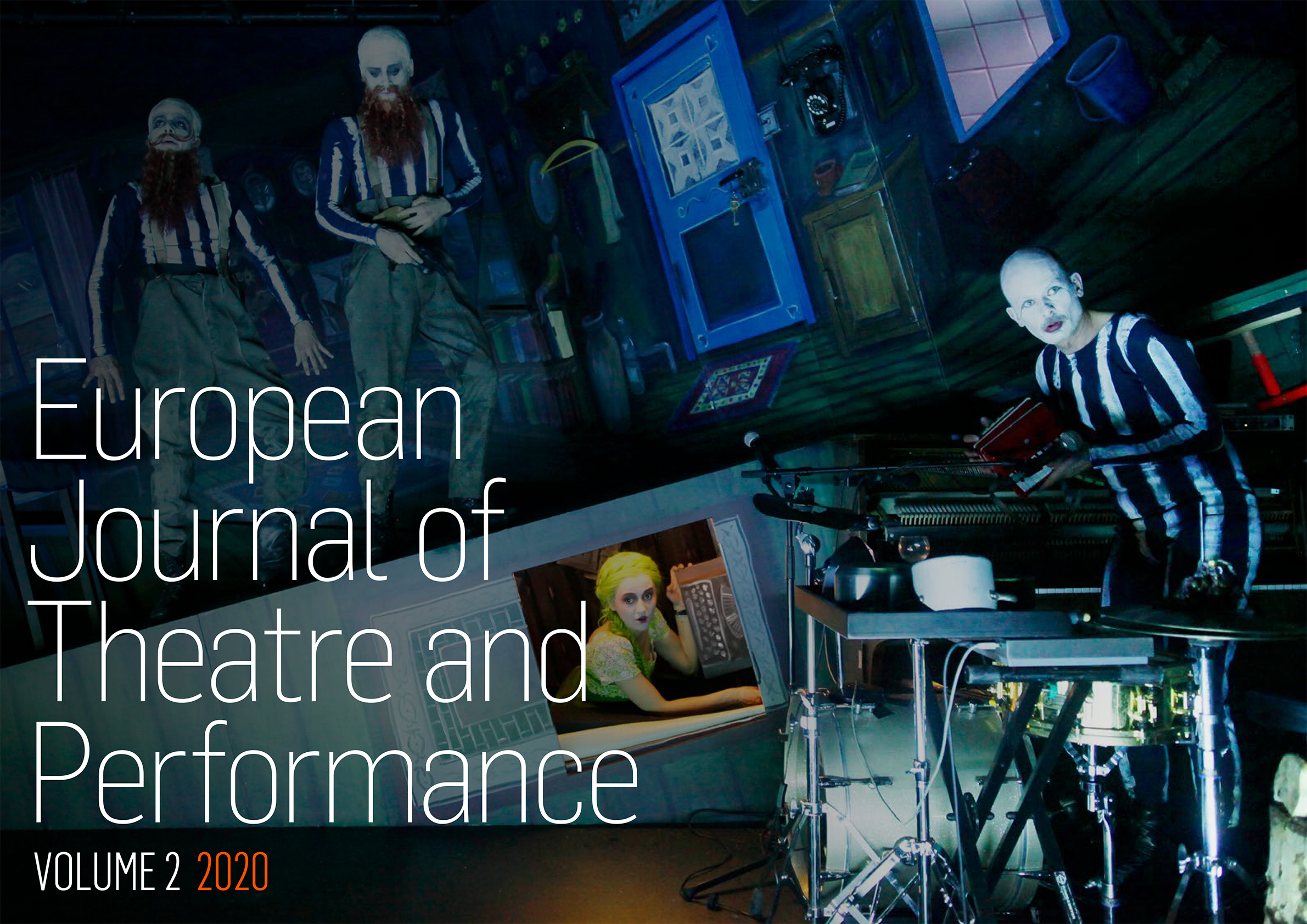Process and Product in the Italian Conceptual Theatre
DOI:
https://doi.org/10.21827/ejtp.2.41782Keywords:
Rifondazione, teatro concettuale, decostruzione, analisi metalinguistica, processo e prodottoAbstract
Between the mid-seventies and early eighties the Italian experimental scene was crossed by a profound artistic ferment and by the proliferation of “trends”, events (festivals, shows) and theatrical formations. In 1976, in particular, the New Italian Theatre experienced its most “utopian” phase: the artists of the third generation of the avant-garde undertake, in fact, a radical refoundation of the scenic code. What emerges in many theoretical statements as well as through the proposed stage shows is the idea of a “zero degree” of the scenic language, which is disrupted in its pre-semantic signs. Following on from the lesson of Conceptual Art, theatre undergoes therefore a self-reflexive research and is broken down, in an analytical way, in its phonemic units. The present essay aims to analyse the creative processes and the deconstruction that characterise the Conceptual Theatre, also through the narration of some of the most important experiences that emerged in those years.
Published
Issue
Section
Copyright (c) 2020 Mimma Valentino

This work is licensed under a Creative Commons Attribution 4.0 International License.

